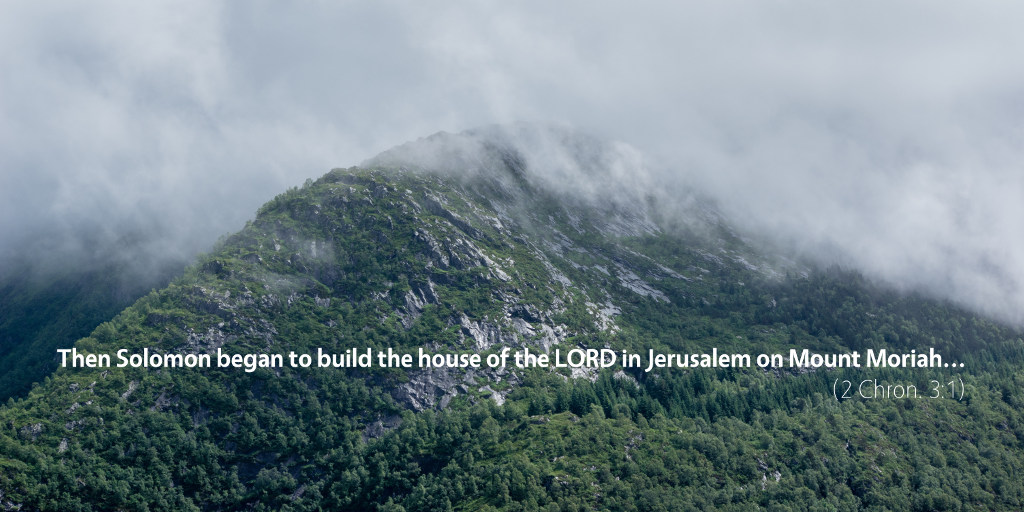Bible Readings for December 4th
2 Chronicles 3–4 | 1 John 3 | Nahum 2 | Luke 18
In a previous meditation, we looked at the only story in 1 Chronicles that recorded David’s sin: the story of the census that he took.1 As we discussed, one of the reasons that story was included is to provide the backstory of how David purchased the threshing floor of Ornan the Jebusite, since that site became the location where the temple would eventually stand: “Then David said, ‘Here shall be the house of the LORD God and here the altar of burnt offering for Israel’” (1 Chron. 22:1).
In our reading for today, then, we find this detail reiterated in 2 Chronicles 3:1: “Then Solomon began to build the house of the LORD in Jerusalem on Mount Moriah, where the LORD had appeared to David his father, at the place that David had appointed, on the threshing floor of Ornan the Jebusite.” This verse, however, adds another unexpected wrinkle by giving us more information about the temple’s location. Here, we learn that the temple is built on Mount Moriah. This information is extremely significant, since Mount Moriah was the place where God tested Abraham, saying, “Take your son, your only son Isaac, whom you love, and go to the land of Moriah, and offer him there as a burnt offering on one of the mountains of which I shall tell you” (Gen. 22:2). We learn here something shocking: the temple is built on the very spot where Abraham had nearly offered his son Isaac up as a sacrifice so many years before.
But more than just an interesting correlation of locations, there is also an interesting correlation of stories between the sacrifice of Isaac and the threshing floor of Ornan the Jebusite. In both cases, Yahweh provided a substitute to spare his people—in the case of Abraham, Yahweh provided a ram whose horns were caught in the thicket that Abraham offered as a substitute for Isaac (Gen. 22:13). In the case of David, Yahweh allowed a sacrifice on Ornan’s threshing floor to turn away his wrath from the people of Israel (1 Chron. 21:26–27).
Together, both of these stories announce that the temple would be the place where Yahweh’s people would shed the blood of animal sacrifices as a substitute for themselves. When the people sinned, the sacrificial animals would die in their place to avert Yahweh’s wrath. And ultimately, these stories point forward to the way that David’s greater Son, the Lord Jesus Christ, would endure the suffering of the cross, not because of his own sin, but as the substitutionary sacrifice Yahweh provided to avert his wrath from us.
The LORD will provide—and he has provided—nothing less than his own Son as your substitute. Jesus died in your place, for your sins, so that you might be reconciled to God.
1 See the November 25 meditation for 1 Chronicles 21.
Podcast: Play in new window | Download (4.4MB) | Embed
Subscribe: Apple Podcasts | RSS | More

Scripture quotations are from The Holy Bible, English Standard Version copyright © 2001 by Crossway Bibles, a division of Good News Publishers. Used by permission. All rights reserved.


